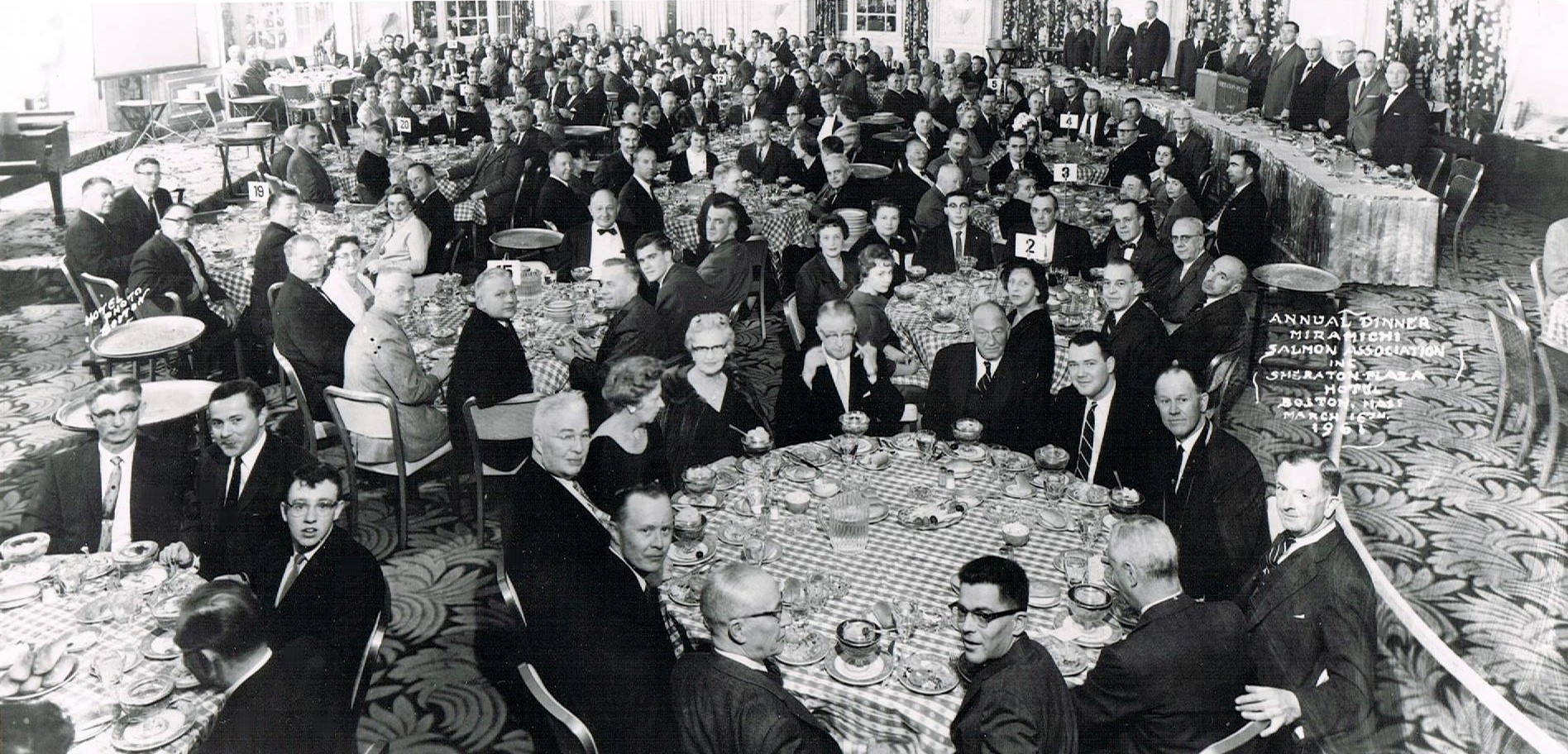
Miramichi Winter River Update and 70th Anniversary US Dinner Announcement
Fishing Friends – if you treasure Atlantic salmon as we do, then there are two very important things that should be on your must do list for 2023.
The first is to become a member of the Miramichi Salmon Association. This is the organization that is really doing helpful things to stop the decline in Miramichi salmon.
The second thing is to support the MSA US fundraising activities so that we can continue our conservation mission. Right now we’re asking you to purchase tickets to the 70th Anniversary MSA US Winter Event. It is scheduled for Feb. 4th 2023 at the Portland Country Club in Falmouth, Maine.
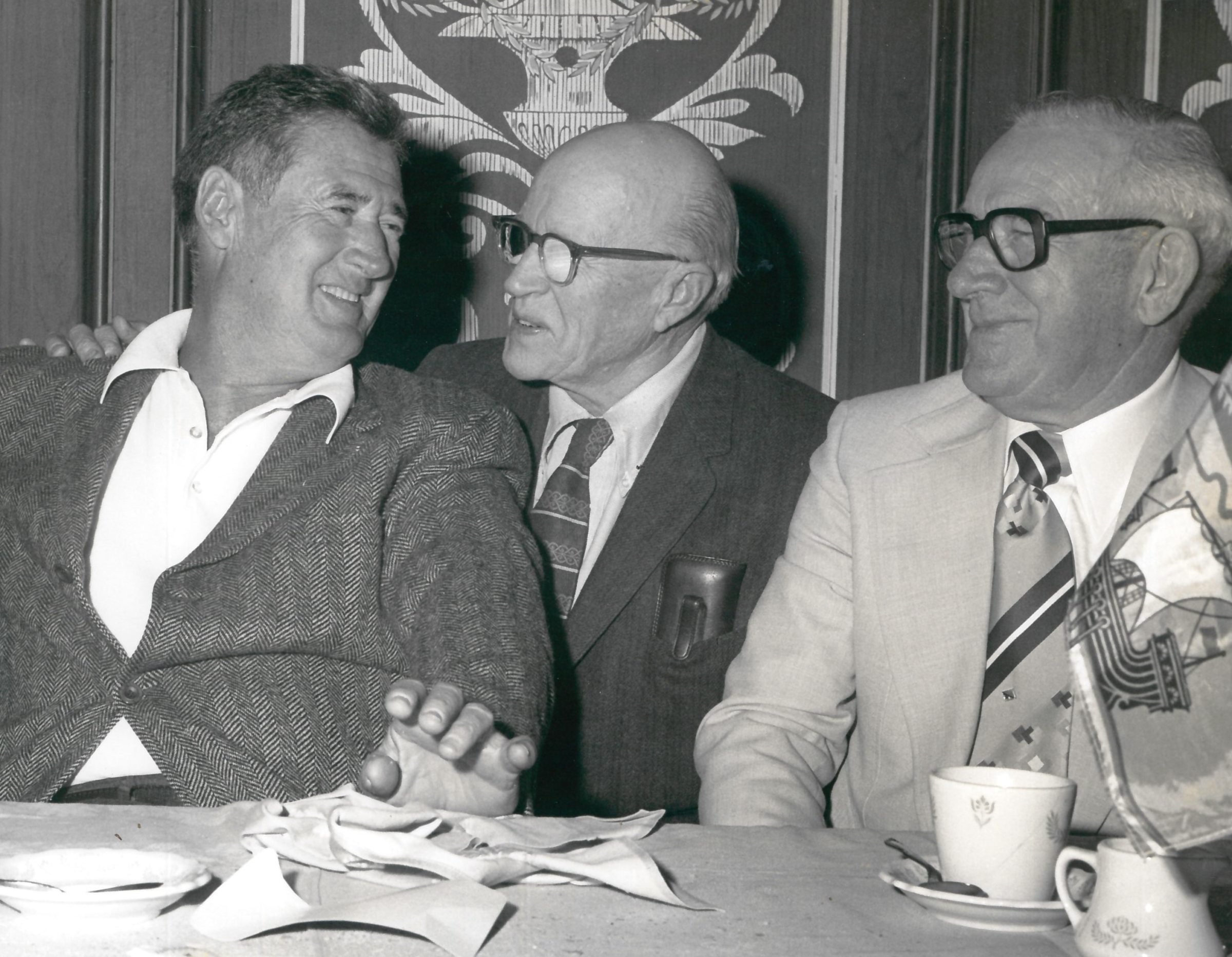
Standing on the shoulders of giants… Ted Williams on the left and Charlie Wade on the right hear a new joke from Worcester fly shop owner Paul “Kuki” Kukonen.
It’s going to be a great event:
- The Portland Country Club is beautiful waterfront facility.
- We have an excellent buffet dinner planned with a choice of wine at each table.
- The event will also be broadcast via zoom with a dedicated hostess and welcome messages to online attendees by MSA president Robyn McCallum, and MSA US officers Rip Cunningham, Brad Burns, and Dave Fenderson. We’ve hired professional audio-visual support to make this experience as close to being there as possible. Zoom attendees will receive an engraved, complimentary MSA 70th Anniversary Wheatley fly box and REC recoiler.
- President Robyn McCallum will give an MSA progress report.
- Our keynote speaker will be Andrew Willet who is the Director of Sustainability and Indigenous Relations for JD Irving. Andrew was also the executive director of the CAST program.
Live auction items include:
- Two three day Miramichi salmon trips, one to the famous Black Brook Salmon Club, the other to Campbell’s Pool which includes fishing at Doctor’s Island and Brophy Pool
- Two, top-shelf golf outings, one at the Woodland’s Country Club and the other at the Portland Country Club
- Original paintings by two of the sport’s best-known artists, Thomas Aquinas Daily and Luther Hall.
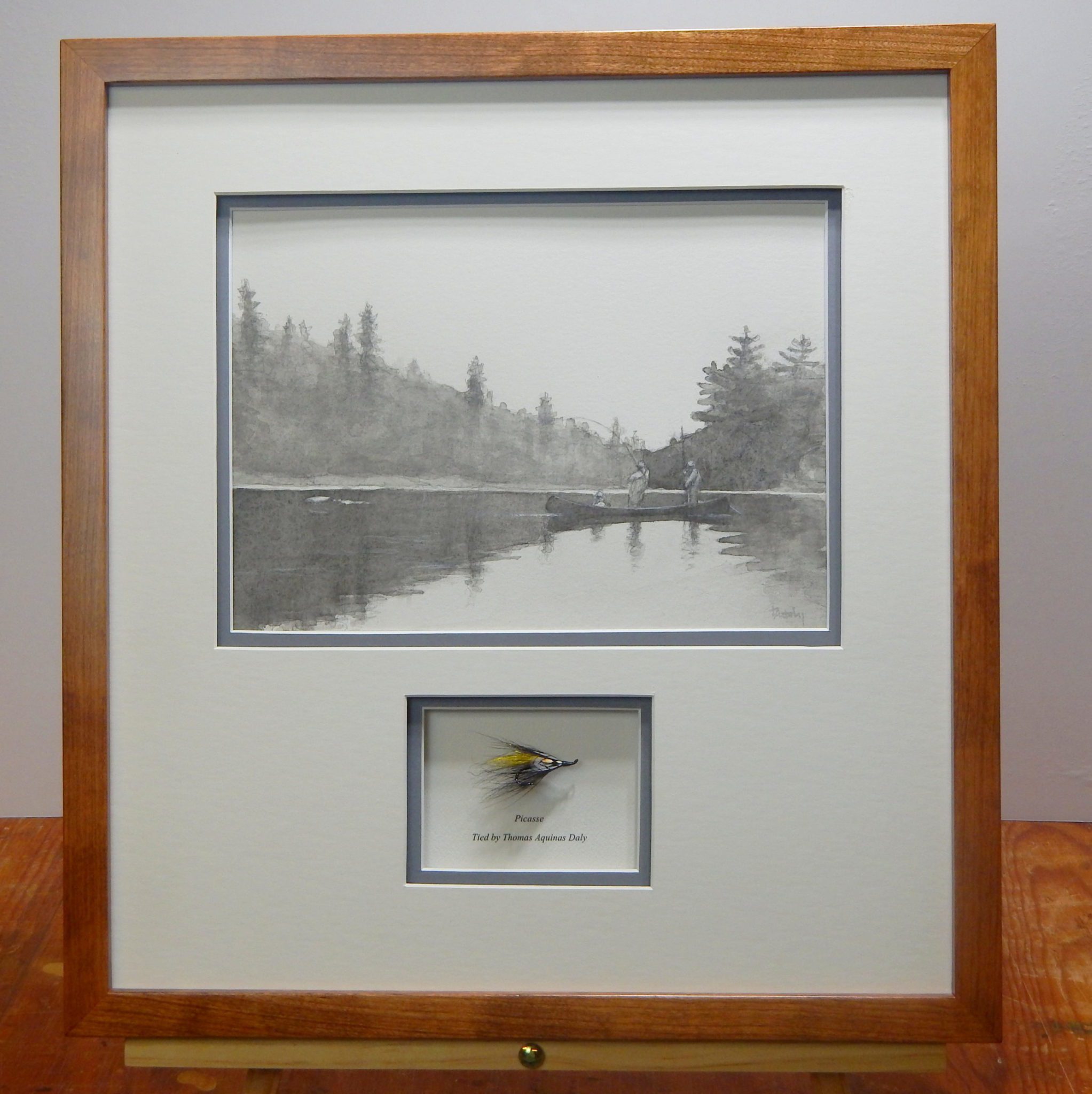
Thomas Aquinas Daly original watercolor wash painting and hand tied fly. Custom framed by Gary Tanner
- Box seat tickets for 4 to the Boston Red Sox at Fenway
- Orvis Fly Fishing Outfit
- Hand tied flies by Gary Tanner
Silent auction includes donations from LLBean, Orvis, WS Emerson, Scientific Anglers, REC, Wheatley, John Swan, Stephen Hobson photographer, Maine trout trip with Isaah Carman, several fly collections from top tiers, and more…
If you are not currently a member of the MSA we will automatically provide a one year complimentary membership for every seat you buy at the dinner.
We are limited to 120 in-person attendees, so please order your tickets today at this link https://miramichisalmon.ca/us-event/
Discounted Freeport Hilton hotel reservations can be made at the same link.
We very much look forward to seeing you at the dinner or on-line via zoom. Please e-mail Dave Fenderson dwhfenderson@gmail.com with any questions or seating requests.
Brad Burns President MSA US
Dave Fenderson Vice President MSA US
Miramichi River Winter Report
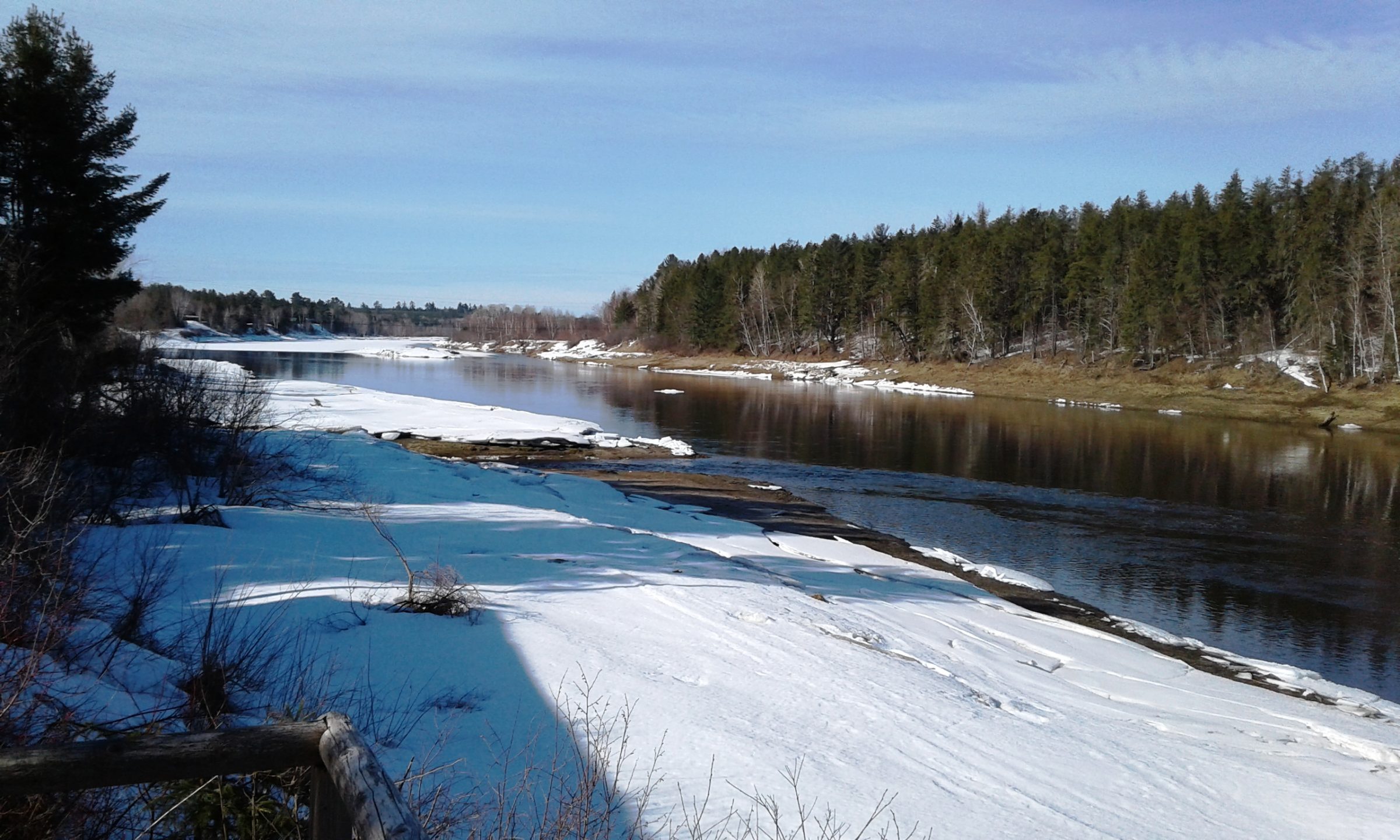
Black Brook flows into a partially open Miramichi two days before opening day 2019. Eddie Colford photo.
The big news for the moment is that it is January 4th and the Miramichi still isn’t frozen. It actually has iced over a couple of times, but the combination of mild temperature periods and persistent high water have kept it from freezing solid. As you can see in the photograph from Boiestown there is no ice at all at the current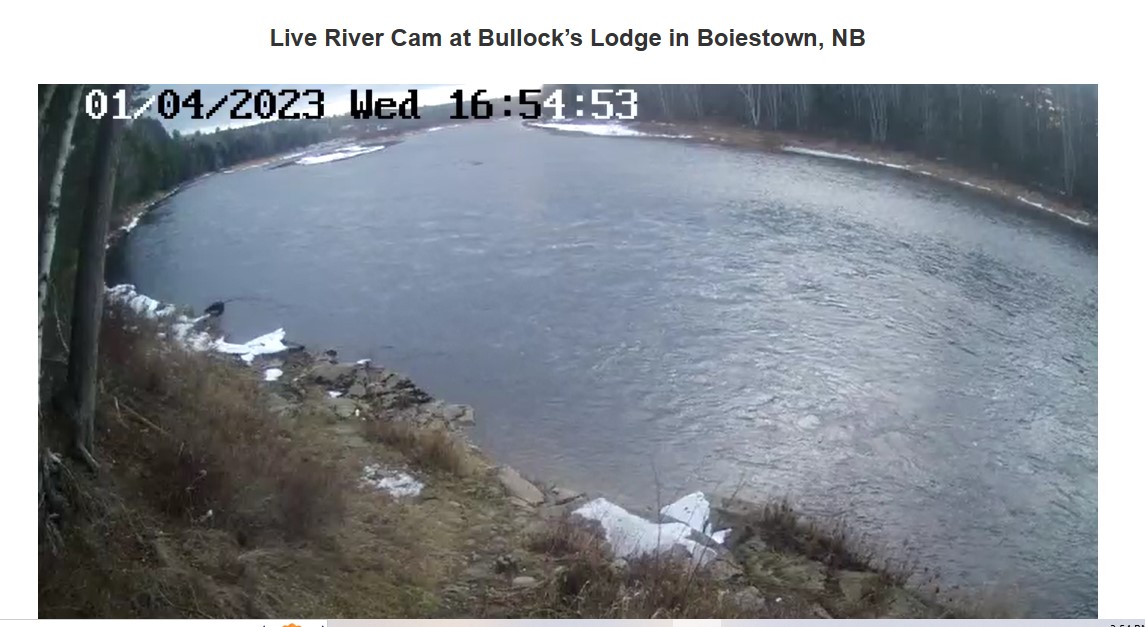 moment. That is likely to change as temperatures will be returning to more or less normal over the next few days. Also, a look at the Blackville gauge shows the water temperatures are within a degree of freezing. It is abnormally late, though, and because of that it is unlikely that the ice this winter will be as thick as normal, and that means that it is also likely to exit the river a bit early. So what does this mean for the salmon? I asked this question to Mark Hambrook and Rick Cunjak PhD. Here’s what they had to say:
moment. That is likely to change as temperatures will be returning to more or less normal over the next few days. Also, a look at the Blackville gauge shows the water temperatures are within a degree of freezing. It is abnormally late, though, and because of that it is unlikely that the ice this winter will be as thick as normal, and that means that it is also likely to exit the river a bit early. So what does this mean for the salmon? I asked this question to Mark Hambrook and Rick Cunjak PhD. Here’s what they had to say:
Mark Hambrook “The warmer fall water temperatures have caused eggs in our hatchery to accelerate and they have “eyed-up” a few weeks earlier than normal. This has happened before with no consequence as warm fall temperatures is usually balanced with colder spring temperatures and fry usually emerge, with all the other creatures that they survive on, at roughly the same time. Temperature does trigger the spring smolt run to the ocean and smolts start moving in quantities once the temperature gets over 10 C.”
Rick Cunjak PhD “In my experience, a late freeze-up or a thawing of thin ice cover in Dec/Jan such as we are seeing now is likely a good thing as it relates to winter survival of kelts, parr and eggs. My rationale relates to water levels and streamflow. Water temperatures are probably of little consequence because, even without having seen temperature data, my guess is the water temperature is still near freezing. Rather, the current mild weather and rain has resulted in increased water flow and higher water levels. This factor together with the loss (or lack) of ice means more winter habitat (for parr and kelts) and more water flowing over and through redds where eggs are incubating. A quick look at the hydrograph for the Southwest Miramichi River shows that December water levels were similar to what we saw in April and May. It is harder to form an ice cover with such high, fast flows especially with relatively mild air temperatures. The longer we maintain such high flows, the less likely the river will be able to form a thick ice cover. Remember, it’s the sudden break-up of a thick ice cover that can be problematic because of the physical disturbance that can lead to scouring. Instead, current conditions are potentially positive points for salmon to successfully survive the winter.”
So in both cases the interpretation of current conditions is quite positive. It makes me think about getting out on the river in April and having a look for myself. My old mentor Willie Bacso used to say that he always felt better after January 1 which he considered to be the top of the hill. Sounds good to me.
I hope to see everyone at the dinner, either in person or on-line.
Thanks for reading. Brad Burns
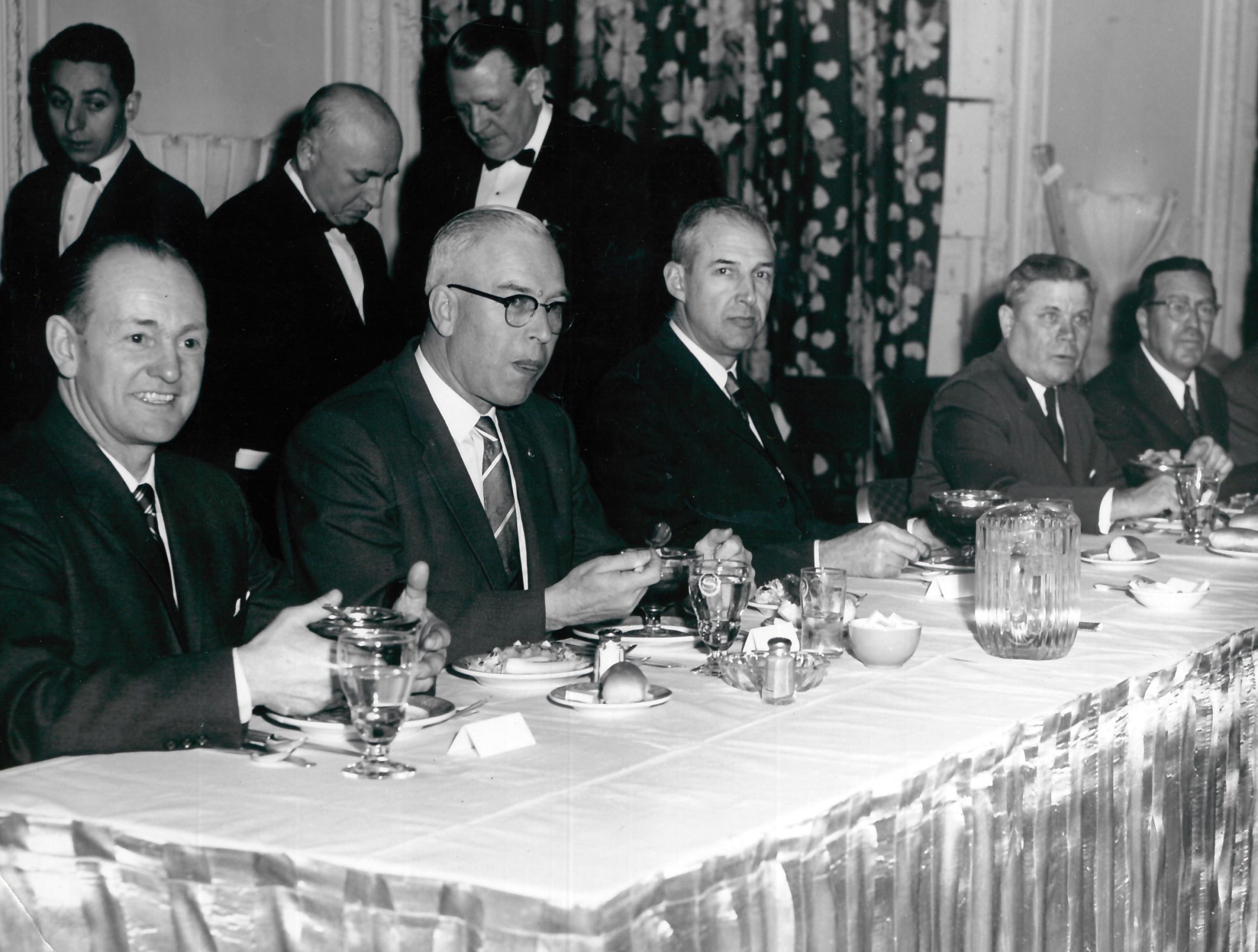
Some MSA founders in 1961, L to R Clayton Stewart, Rex Freeze, John Gottschalk, Edward Crosby, Kingsbury Browne


